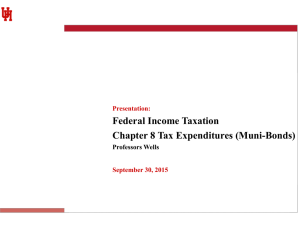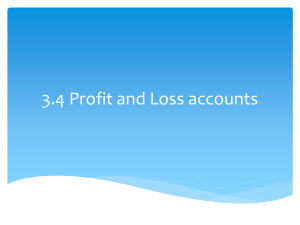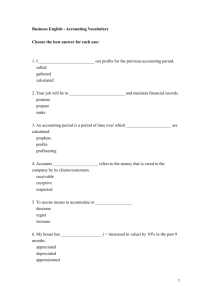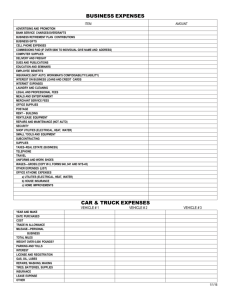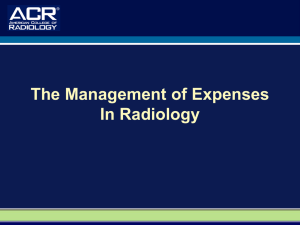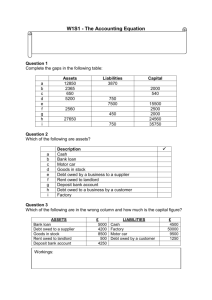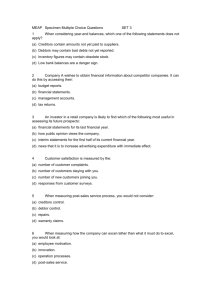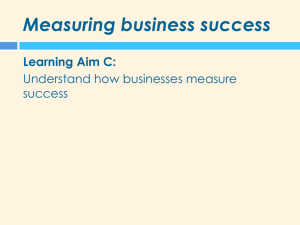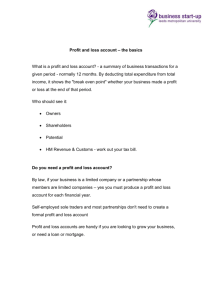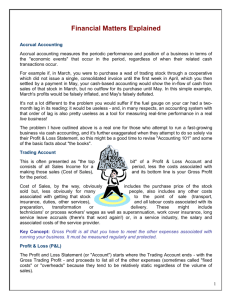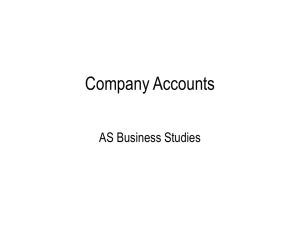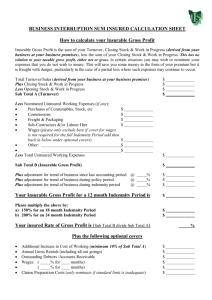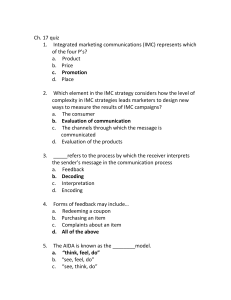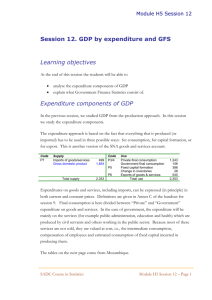Unit 5 * Business Accounting
advertisement
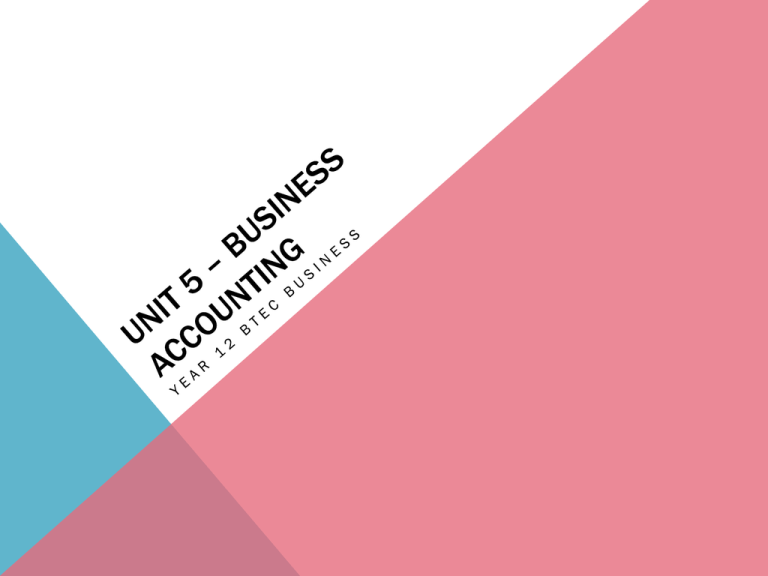
UNIT 5 – LEARNING OUTCOMES To understand the purpose of accounting and the categorisation of business income and expenditure Be able to prepare a cash flow forecast Be able to prepare profit and loss accounts and balance sheets Be able to review business performance using simple ratio analysis THE ASSESSMENT CRITERIA INFORMATION REQUIRED FOR ASSIGNMENT 1 • Why is it important to keep accurate financial records? P1 • How will these records help the entrepreneur? P1 • What is meant by revenue and expenditure? P2 • What is the difference between revenue expenditure and capital expenditure? P2 • What type of revenue and capital income can they expect to incur? P2 • What is the difference between revenue income and capital income? P2 • What type of revenue and capital income can they expect to receive? P2 ACTIVITY What is it to be a chartered accountant? Complete the handout - 15 minutes to complete RECORDING TRANSACTIONS • Must record money coming in (from sales) • Must record money going out (expenses) • Must not forget to pay bills or chase payments • Must not get in trouble with HMRC (UK) IRD (HK) • Must ensure tax is correct Sales that have not yet been paid for – value owed to the business Goods or services purchased but not yet paid - value owed by the business MONITOR ACTIVITY Keeping an eye on the bank balance to ensure there are funds to meet day to day expenses CONTROL If transactions are recorded, and activities closely monitored then there should be control between what is going in and out of the business e.g. if sales were staying the same but expenses increasing the owner could step in and control costs MEASURING FINANCIAL PERFORMANCE • Check whether the business is making a profit or a loss • Does the business owe any money? • Key indicators: • Gross profit • Net profit • Value owed to the business • Valued owed by the business SALES REVENUE The money that is brought into the business through selling items How to calculate sales revenue Selling price x quantity sold e.g. selling 100 items at $25 each $25 x 100 = $2,500 sales revenue Complete handout activity part 1 GROSS PROFIT Profit after the cost of goods sold or cost of sales* has been taken away from sales revenue *Cost of sales are the sales incurred from directly generating revenue. If your gross profit is low, what might be the problem? Complete activity 2 NET PROFIT • Net profit is gross profit minus other expenses e.g. rent or advertising • Complete activity 3 HOW WILL THESE RECORDS HELP AN ENTREPRENEUR? Unit 5 Assignment 1 Begin work on first two parts of new assignment

